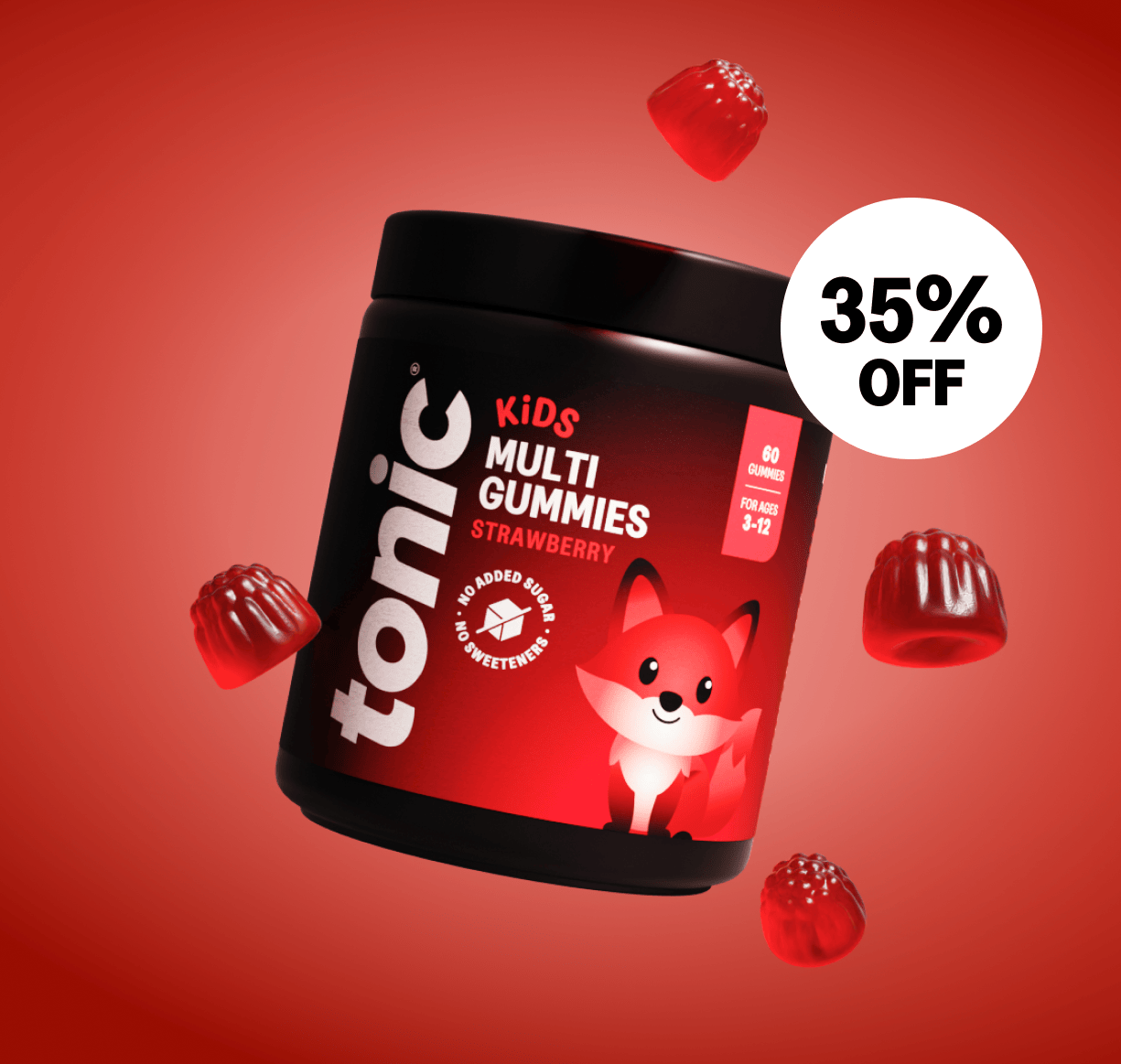The idea of it may be a bit creepy, but your gut is home to trillions of microorganisms - bacteria, fungi, and other microbes - collectively known as the gut microbiome. This busy ecosystem plays a critical role in your digestion, immunity, metabolism, mood, and even your energy levels. A happy, balanced microbiome can mean better digestion, improved nutrient absorption, more resilience to stress, and even clearer thinking.
When it comes to supporting this microbial community, two terms often get thrown around: probiotics and prebiotics. While they sound similar, they perform very different roles, and understanding the difference can help you decide what your body needs.

What are probiotics?
Probiotics are live microorganisms (most commonly bacteria) that confer health benefits when consumed in adequate amounts. They help maintain a healthy microbial balance, compete with harmful bacteria to keep them in check, and support the gut’s barrier function.
Probiotics influence many aspects of health:
- They help with bloating, irregular bowel movements, and general gut function.
- About 70% of your immune cells live in the gut, and probiotics help regulate immune responses, making you more resilient to infections.
- Probiotics can support neurotransmitter production in the gut (sometimes called the second brain), influencing serotonin levels and helping with stress, mood, and sleep.
- Certain probiotic strains may help reduce low-grade inflammation, improve blood sugar regulation, and support weight management.
Food sources of probiotics include fermented foods such as yoghurt, kefir, sauerkraut, kimchi, miso, tempeh, and kombucha. Regularly incorporating these foods can help maintain a steady supply of beneficial bacteria.
What are prebiotics?
Prebiotics, on the other hand, are non-digestible fibres and compounds that feed the beneficial bacteria already living in your gut. Think of them as the fertiliser that keeps your microbiome thriving - just as you would feed your house plants. Without prebiotics, probiotics may struggle to establish themselves and flourish.
Prebiotics support gut and overall health in several ways:
- They encourage the growth of beneficial strains, creating a balanced ecosystem that can resist harmful bacteria.
- They can improve bowel regularity and reduce bloating by feeding fibre-loving bacteria that produce short-chain fatty acids (SCFAs), which nourish gut cells.
- By promoting a healthy gut lining and balanced microbiome, prebiotics indirectly support your body’s defence mechanisms.
- SCFAs produced by prebiotic fermentation can influence blood sugar control, fat metabolism, and even brain signalling, contributing to mood stability and cognitive function.
Food sources of prebiotics include onions, garlic, leeks, asparagus, Jerusalem artichokes, chicory root, bananas, oats, and legumes. These fibre-rich foods help feed your gut bacteria and maintain microbial diversity.

Why both matter
Probiotics and prebiotics are best thought of as a team. Probiotics introduce beneficial bacteria when their numbers are potentially low, while prebiotics provide the food those bacteria need to thrive. Taking one without the other isn’t harmful but combining them (sometimes called a symbiotic approach) can maximise gut health benefits.
A balanced gut microbiome impacts far more than digestion. Research links a healthy microbiome to:
- Improved immune resilience, lowering susceptibility to infections.
- Support for neurotransmitter development and mental wellbeing.
- Reduced chronic inflammation, which is implicated in metabolic conditions such as insulin resistance and obesity.
- Better digestive comfort, including reduced bloating, gas, and irregular bowel movements.
- Enhanced nutrient absorption, so your body gets the most from your diet.
From clinical experience, you don’t need to have severe gut symptoms to have a microbiome imbalance. Supplements can be helpful, especially after antibiotics, during digestive issues, or with restricted diets. However, introducing probiotics into an already overgrown gut ecosystem may sometimes worsen symptoms, so it’s best to work with a nutritionist if you’re unsure or your issues are longstanding.
Gut check…
Supporting your gut microbiome is one of the most beneficial ways to influence your energy, immunity, mood, and metabolic health. Probiotics introduce beneficial bacteria, prebiotics feed them, and together they work in synergy to create a thriving, balanced gut ecosystem.
By including both in your diet - through a combination of fermented foods, fibre-rich plants, and, if needed, targeted supplements - you’re giving your microbiome the tools it needs to support your digestion, immunity, and overall wellbeing.
By taking care of your gut, you are taking care of your whole body.
Explore Kids Pre + Probio Gummies
About the author:
Natalie Louise Burrows is a registered nutritional therapist (BANT, CNHC) and clinic director at Integral Wellness, a nutrition and health clinic specialising in cardiometabolic health.
Along with her clinic team of nutritionists, they help men and women regain their energy, control their cravings and avoid and reverse type 2 diabetes. They also address health conditions such as high blood pressure, high cholesterol, insulin resistance, fatty liver, and heart disease.
Click here to book a free call and find out how you can achieve your health goals.







Leave a comment
All comments are moderated before being published.
This site is protected by hCaptcha and the hCaptcha Privacy Policy and Terms of Service apply.